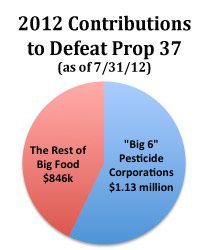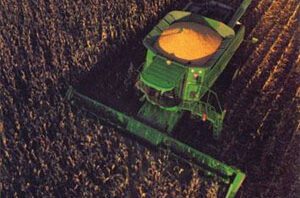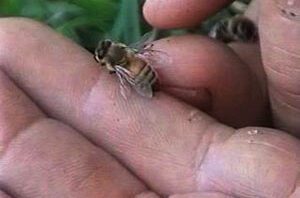Campaign disclosures released this week reaffirm one thing: pesticide and GE seed companies are very focused on defeating Prop 37, the California Right to Know Genetically Engineered Food Act.
In fact, a giant food lobby — which includes Monsanto as a member — has declared that crushing the GE labeling ballot initiative is its "single highest priority" this fall.
Behind front groups and paid consultants, the “Big 6” pesticide makers (BASF, Bayer, Dow, Dupont, Monsanto and Syngenta) have quietly pumped hundreds of thousands of dollars into the effort to kill GE labeling, according to filings released by California’s Secretary of State. These corporations have helped garner over $1 million from several industry groups since January — most importantly the Council for Biotechnology Information — whose membership is (drum roll)…only the Big 6.
And industry opposition doesn’t just impact Californians. Several states considered passing their own laws earlier this year, only to see them quashed for fear of legal reprisal from Monsanto. Efforts to institute federal labeling standards have been similarly stymied.
It’s no surprise that industry is fighting back hard. "The Big 6 chemical and seed companies are working diligently to monopolize the food system at the expense of consumers, farmers and smaller seed companies," said Philip H. Howard, an associate professor at Michigan State University and an expert on industry consolidation.
And Californians are already feeling the opposition to Proposition 37, with the election less than four months away. The Big 6 and their front groups have started circulating a series of aggressive paid mailings, are lobbying political officials and have launched a concerted public relations offensive.
 Pesticide industry’s business model at stake
Pesticide industry’s business model at stake
For too long, pesticide and GE seed corporations have exerted undue influence on our food system while making promises on which they fail to deliver. With up to 80% of non-organic food on grocery store shelves containing GE ingredients, the Big 6 aim to keep us in the dark as their profit margins soar.
As the primary corporations controling the world’s pesticide and seed markets, they enjoy the profits of a virtual monoply. They continue to produce seeds that require more and more pesticide use — ensuring they have a continued market for their products.
As a result, over 85% of the corn and soy in the U.S. — and half of the corn and cotton in California — is genetically engineered to produce its own pesticide or withstand increasing amounts of weedkillers. The increased use of pesticides in agricultural fields puts rural communities and farmworkers at the greatest risk of health harms due to pesticide exposure.
“After over 15 years of commercialization, and millions of dollars in publicly funded research, Big Ag has yet to deliver on the benefits it has long promised farmers and consumers. Their costly seeds are designed to require more pesticide use, not less,” said PAN’s senior scientist Dr. Marcia Ishii-Eiteman.







